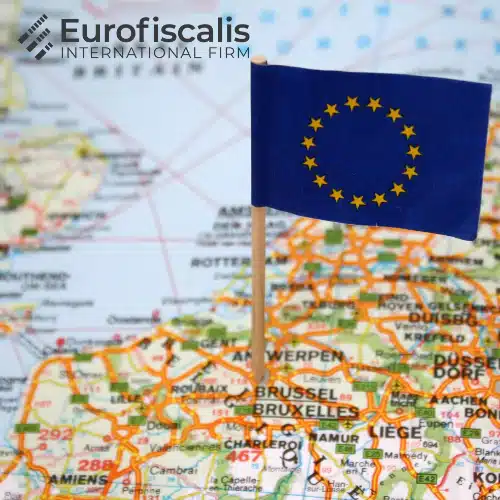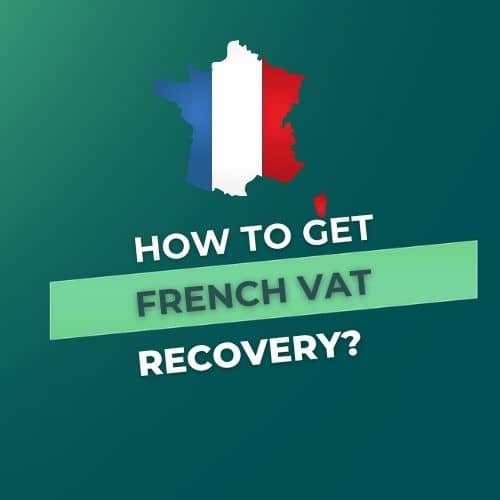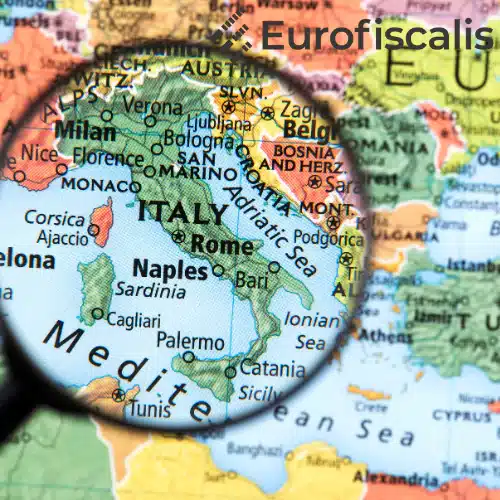Exclusions from VAT OSS - One Stop Shop
VAT OSS makes cross-border VAT compliance easier, but businesses can be excluded due to non-compliance or voluntary deregistration. What are the consequences? Can you regain access? This guide covers everything you need to know about VAT OSS exclusions, their impact, and how to stay compliant.
- Published on :
- Reading time : 10 min
Introduction to VAT OSS
To make VAT compliance easier for companies who offer goods and services internationally, the European Union launched the VAT One Stop Shop (OSS). Thanks to this system, companies no longer need multiple VAT registrations and can declare and pay VAT for all relevant EU countries through a single portal.
Despite its many advantages, VAT OSS is not a one-size-fits-all solution. Some businesses may be excluded from the program, either voluntarily or involuntarily. Businesses operating in the EU market must comprehend the grounds for VAT OSS exclusion, the repercussions, and the procedures necessary to restore eligibility.
The main points of VAT OSS exclusions, typical errors that result in exclusion, the effect on enterprises, and effective practices for preserving compliance will all be covered in this article.
Read more about VAT OSS in EU in our aticle:
Understanding VAT OSS
What is VAT OSS?
The VAT OSS scheme simplifies VAT reporting for B2C sales across the EU. Instead of registering in each country separately, businesses can declare and pay VAT through a single home-country portal.
VAT OSS applies primarily to:
- Distance sales of goods within the EU
- Certain digital services provided to EU consumers
- Some domestic supplies by online marketplaces on behalf of third-party sellers
Any company, whether EU or non-EU (only if they appoint an intermediary), that sells goods and services to customers in several EU member states is eligible to register for VAT OSS. They must, however, adhere to compliance standards, which include filing correct VAT reports and maintaining accurate records for a minimum of 10 years.
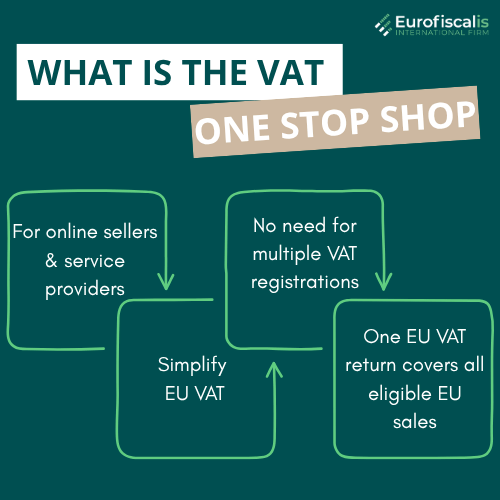
Exclusions from VAT OSS - Reasons
Businesses may be excluded from VAT OSS for various reasons. The two main categories are voluntary deregistration and involuntary exclusion due to non-compliance.
Voluntary deregistration
Some businesses may choose to opt out of VAT OSS. This can happen when:
- The business stops making cross-border B2C sales.
- The company decides to register for VAT separately in each country instead.
- Business operations change, making OSS registration unnecessary.
Process for voluntary deregistration
To deregister from OSS, businesses must:
- Inform the tax authorities in their country of registration.
- Submit a final VAT OSS return covering all sales up to the date of deregistration.
- Ensure all outstanding VAT payments are settled.
Exclusions from VAT OSS – Involuntary exclusion
In some cases, tax authorities may remove a business from the VAT OSS scheme due to non-compliance. Common reasons include:
- Failure to submit VAT returns on time – Regular delays in filing OSS declarations can result in exclusion.
- Late or incomplete VAT payments – Businesses must pay the VAT due on their OSS return within the deadline.
- Providing incorrect information – Falsified or inaccurate data can lead to immediate removal.
- Failure to maintain proper records – Businesses must keep detailed VAT records for ten years.
You can book a free consultation with our VAT experts in time that is suitable for you!
Mistakes leading to exclusion from OSS
Failure to meet VAT obligations before registering for OSS
A company must pay off any unpaid VAT debts in EU member states where it was previously registered before joining VAT OSS. Tax authorities have the right to refuse or cancel OSS registration if previous VAT concerns are not remedied.
- Incorrect VAT rate application
Different EU member states have different VAT rates. Companies who use OSS are required to use the appropriate VAT rate for each nation in which their clients are located. Inaccurate rates may result in tax inconsistencies and potential exclusion.
- Misinterpretation of eligible transactions
VAT OSS is not applicable to every transaction. Companies need to carefully consider if their sales are business-to-consumer (B2C) interactions.
- If their products are kept in many EU locations, local VAT registration might be necessary.
- If they are using a marketplace to sell their goods, the platform may be responsible for VAT.
- Missed filing deadlines
Quarterly VAT OSS returns are due. Missing deadlines on a regular basis may cause tax officials to become suspicious and exclude you. Companies need to make sure they:
- File timely, accurate VAT OSS returns.
- Within the allotted period, pay any VAT owed.
- Poor record-keeping
Companies that use OSS are required to keep their records for a minimum of ten years. This comprises:
- Client data (name, address, and purchase country).
- Every sale was subject to VAT.
- Transaction and payment documentation.
Consequences of exclusion from VAT OSS
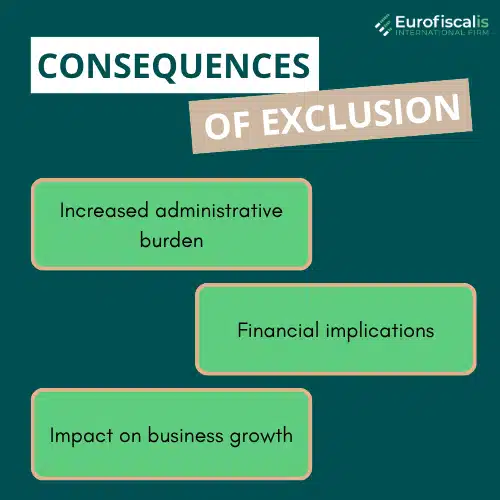
Increased administrative burden
A company must register for VAT in each EU nation where it sells goods or services after being removed from OSS.
This entails:
- More documentation.
- Adherence to the various VAT regulations in every nation.
- Higher fees for filing and registering for VAT.
Financial implications
Among the consequences of exclusion are:
- Non-compliance penalties.
- Increased expenses for accounting and compliance.
- Additional tax obligations and possible VAT audits.
Impact on business growth
Managing VAT in multiple countries can hinder business growth. Operational inefficiencies may result from businesses needing more resources to manage their VAT responsibilities.
How long does exclusion from OSS last?
Exclusions from VAT OSS - One Stop Shop quarantine
⇒ Exclusion from the One Stop Shop will last for up to 2 years. During this time, if a given company wants to continue selling abroad, it must promptly register for VAT abroad, wait for the VAT number to be issued, and submit periodic VAT returns there. This situation can create significant challenges, as outlined below.
⇒ The VAT OSS exclusion period in EU regulations is called a quarantine. If the exclusion occurred due to the persistent failure to meet the OSS requirements, the OSS number ceases to be active on the day following the delivery of the exclusion decision to the taxpayer or from the first day of the next quarter (depending on the severity of the offense).
⇒ This is another reason that obliges you to immediately register for VAT abroad – it’s not just about sales, but also about potential returns and complaints regarding your products, which you will no longer be able to report in the OSS VAT declaration.
The OSS quarantine is imposed by the home tax office at the request of the foreign tax office. You can appeal this decision if you believe there has been a misunderstanding by contacting the parent tax office.
Steps to reintegrate into VAT OSS
If you have been excluded from the OSS and still want to conduct business in the European Union by selling your products via shipping, you must register for VAT in each country where you conduct sales. Although this is the correct solution, you must consider that your sales abroad will be temporarily halted, so think about how you can secure your finances.
The VAT registration process, depending on the country, takes a considerable amount of time. Additionally, you need to gather registration documents and have them translated (more information about the registration time can be found in the “in which countries we operate” section).
In addition to the costs you have to incur for registration, you also need to account for the increased time commitment for additional work that you will have to do to properly settle VAT in each country separately. You must know that the periods for submitting declarations vary greatly depending on the country; they can be monthly, bi-monthly, or quarterly.
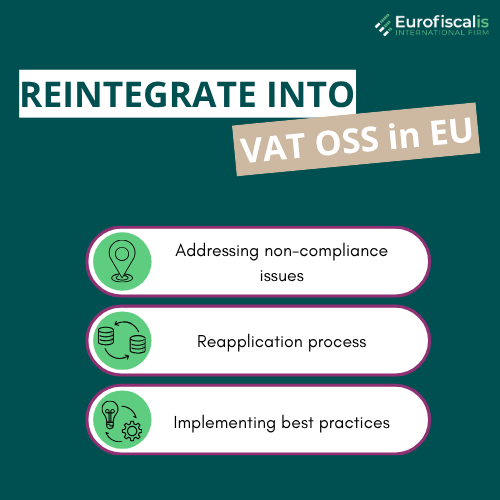
→ If a business is excluded from VAT OSS, it may be able to reapply after fulfilling certain conditions.
Addressing non-compliance issues
To reinstate VAT OSS registration, businesses should:
- Settle any unpaid VAT and penalties.
- Correct filing errors and submit any outstanding VAT returns.
- Implement internal compliance measures to avoid future issues.
Reapplication process
Businesses must wait for the required VAT OSS exclusion period to pass (if applicable) before applying again. Upon reapplication, tax authorities may require proof that previous non-compliance issues have been resolved.
Implementing best practices
To prevent future VAT OSS exclusion, businesses should:
- Use expert VAT compliance services
- Automate VAT calculations and reporting to avoid future VAT OSS exclusions exclusion.
- Keep in constant contact with tax officials.
You can book a free consultation with our VAT experts in time that is suitable for you!
Best practices to maintain VAT OSS
Regular staff training
VAT laws frequently change. Businesses should ensure employees handling tax compliance receive regular training on:
- VAT OSS requirements.
- Country-specific VAT rates.
- Filing and payment deadlines.
Use of VAT compliance software
Automating VAT reporting can reduce human errors. Many companies invest in software that:
- Calculates VAT automatically.
- Tracks VAT obligations in different EU countries.
- Sends reminders for VAT return deadlines.
Professional tax consultation
Consulting a VAT specialist can help businesses:
- Stay updated on OSS regulations.
- Ensure they apply the correct VAT rates.
- Prevent costly compliance mistakes.
Maintain open communication with tax authorities
Engaging with tax authorities can help clarify doubts about VAT OSS compliance. Businesses should:
- Regularly review tax authority updates.
- Request clarifications when necessary.
- Keep documentation ready in case of audits.
Source: VAT OSS in EU
Get more information on our website or contact us!
Zosia is a marketing specialist in Eurofiscalis, a company with a well-established position in the field of cross-border VAT compliance. Simultaneously, Zosia continues her academic development as a master’s student in Finance and Accounting, which enables her to stay up-to-date with evolving tax regulations.
Combining her knowledge of marketing with a deep understanding of finance and taxes, creates precise, substantive, and easily accessible content. Her mission is to educate in understanding the complexities of taxation related to doing business in international markets.
With her commitment, Zosia translates complex tax issues into clear language, providing valuable information that genuinely helps companies in their development and international expansion. She aims for tax information to be not only understandable but, above all, helpful in making business decisions.

